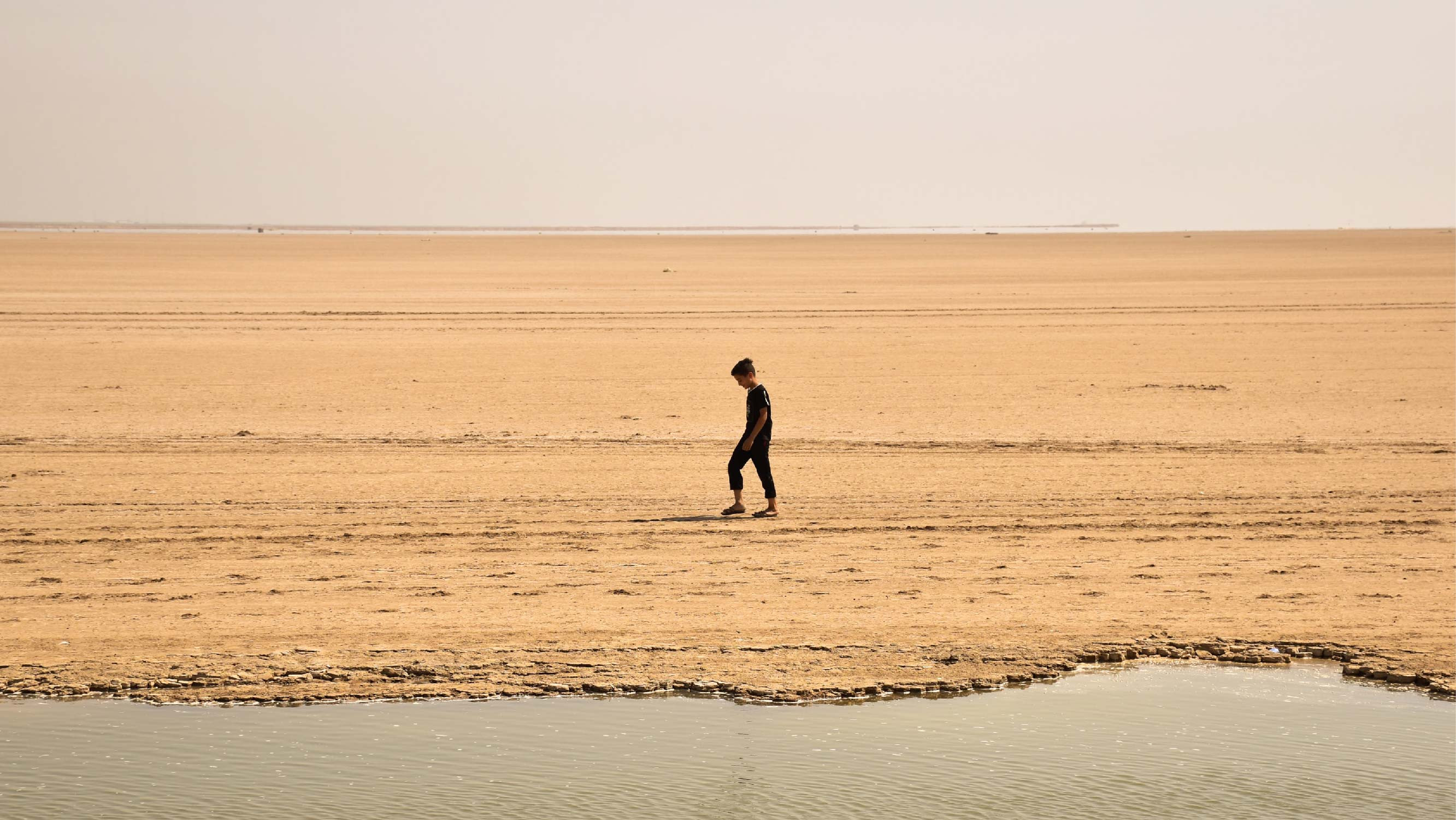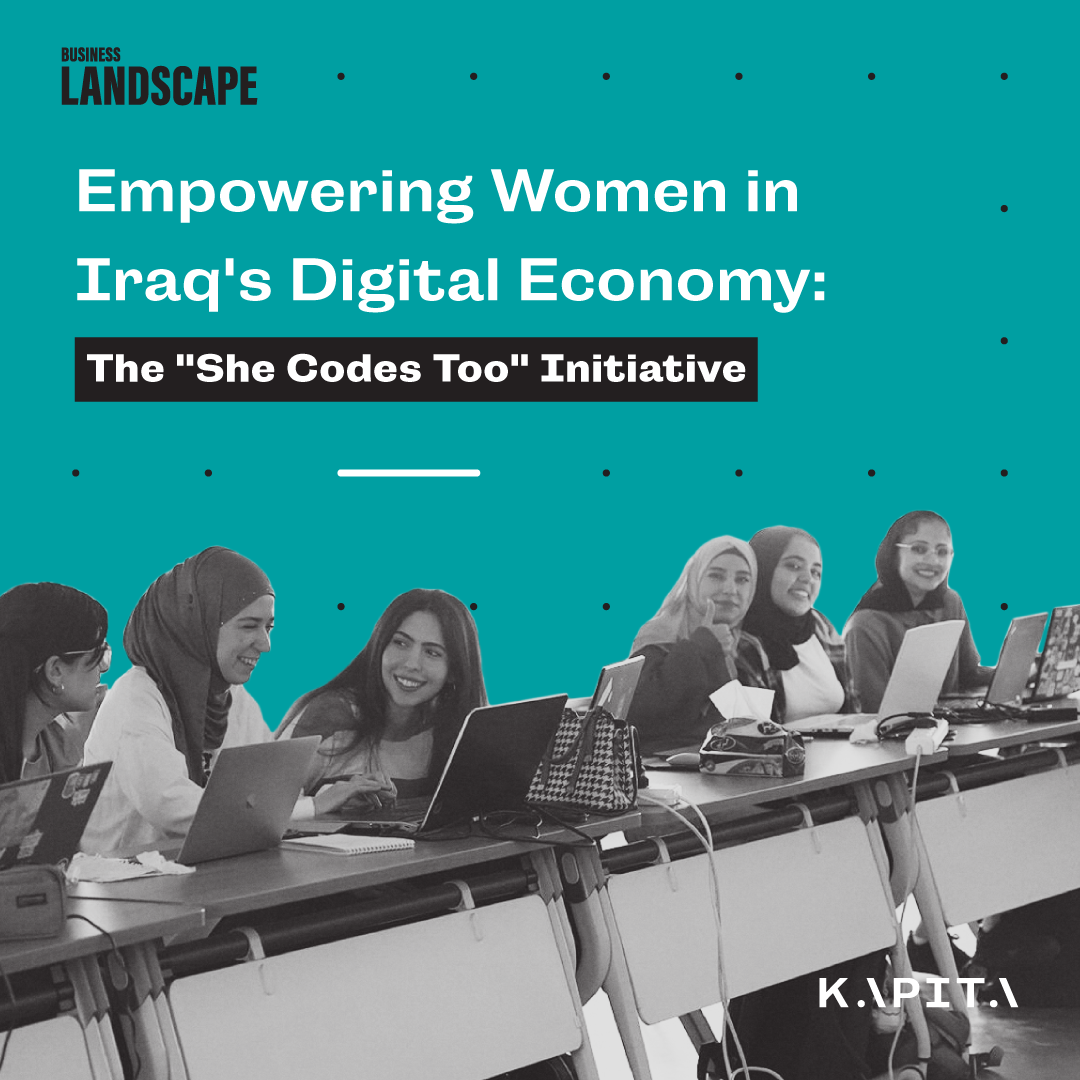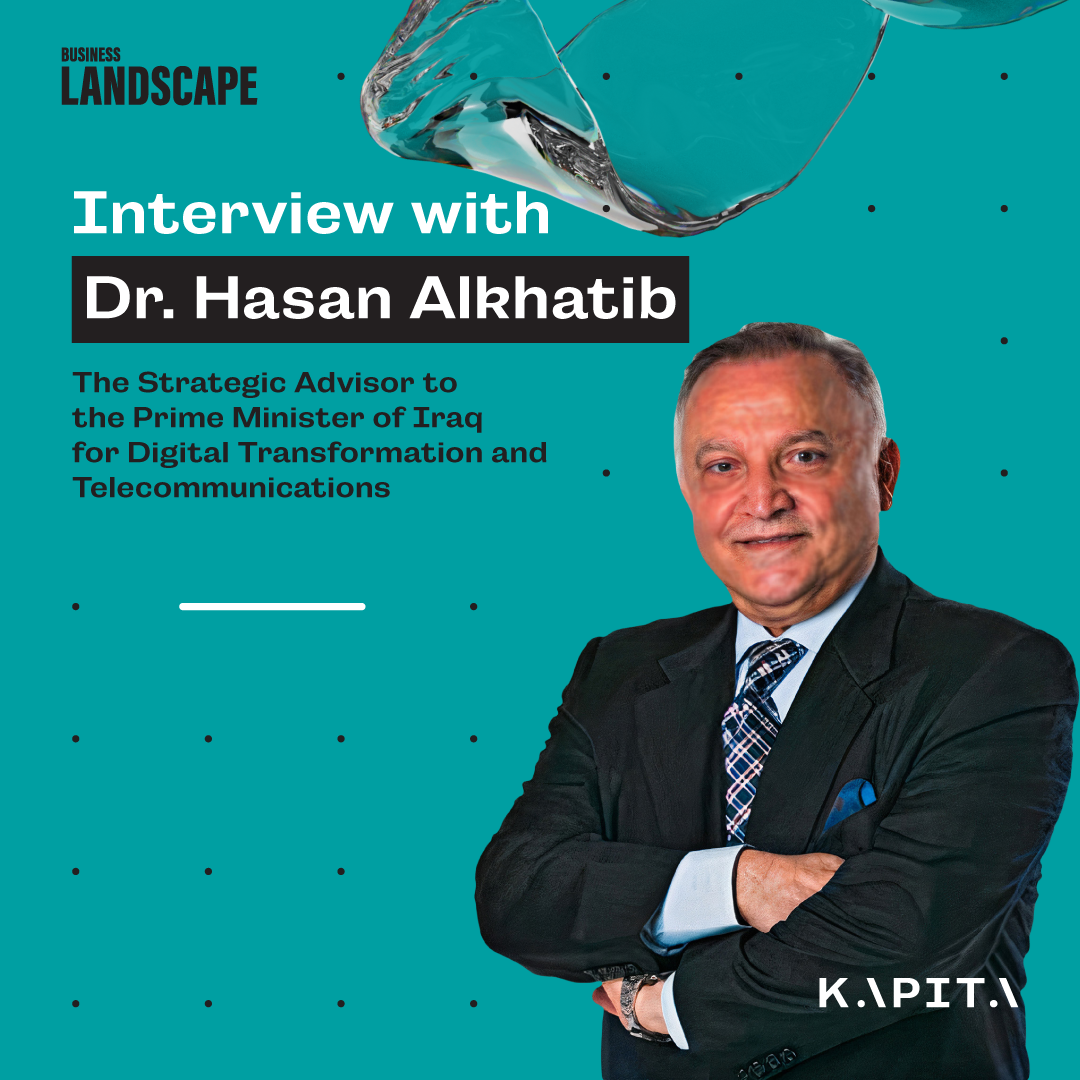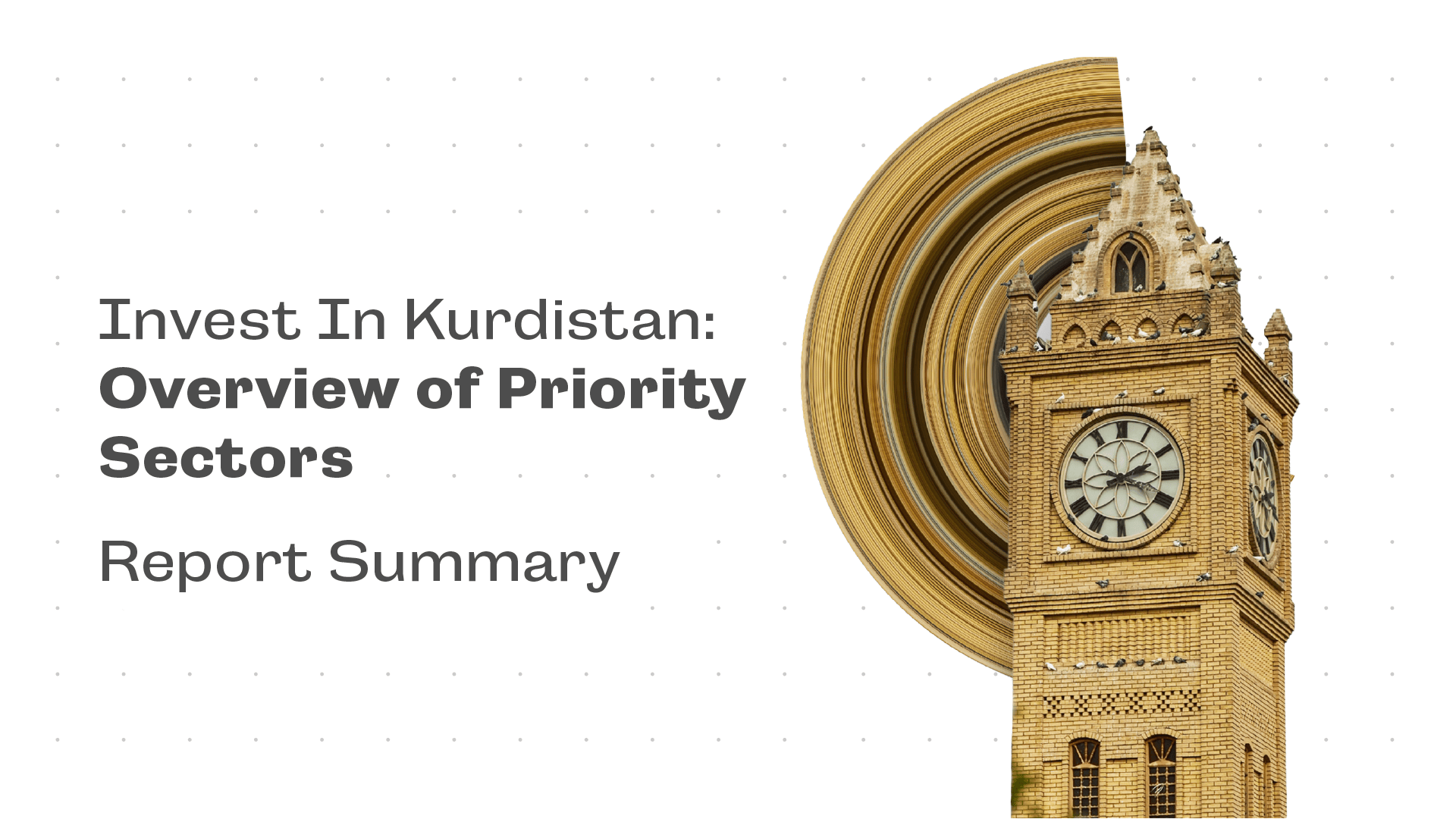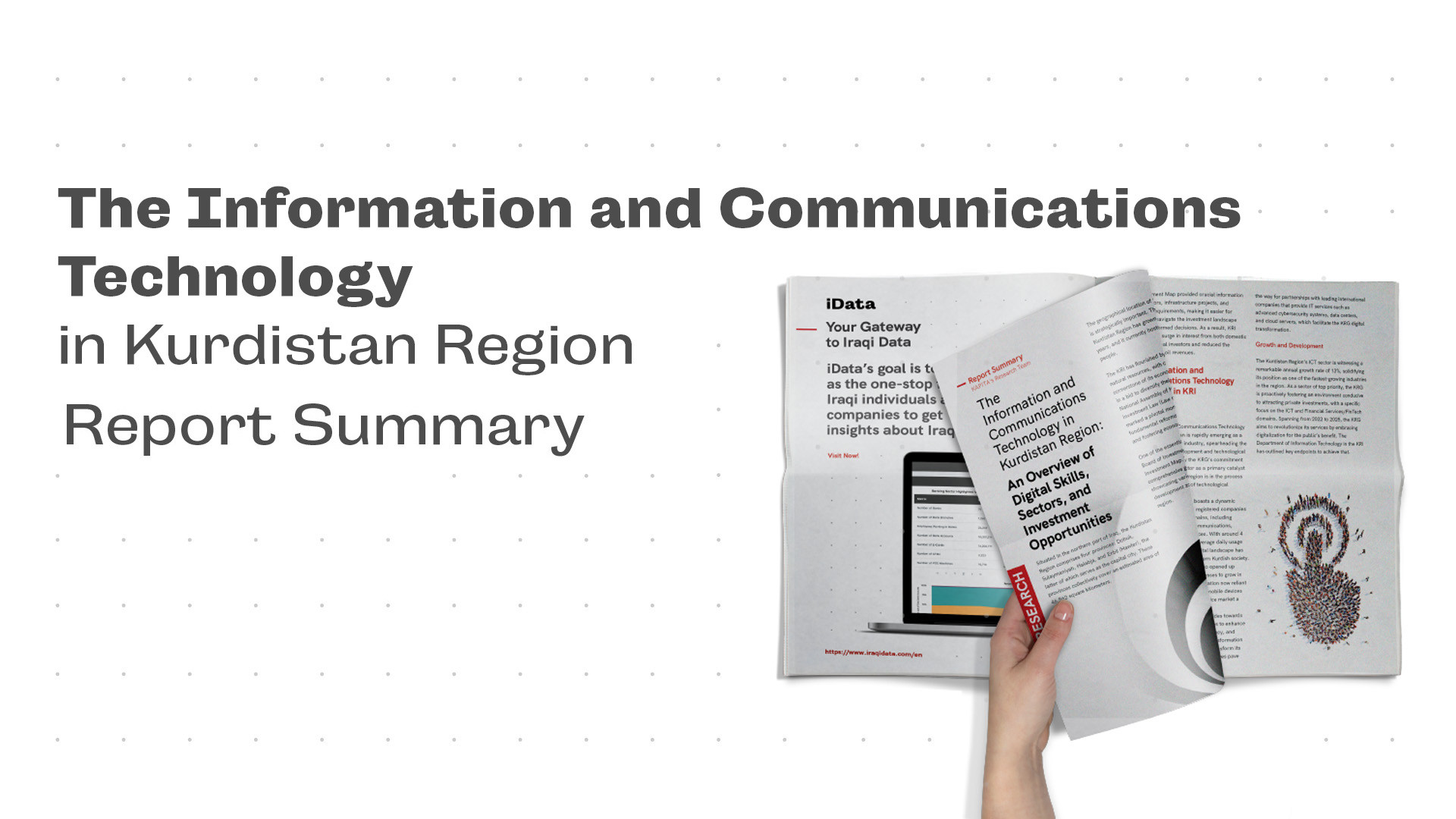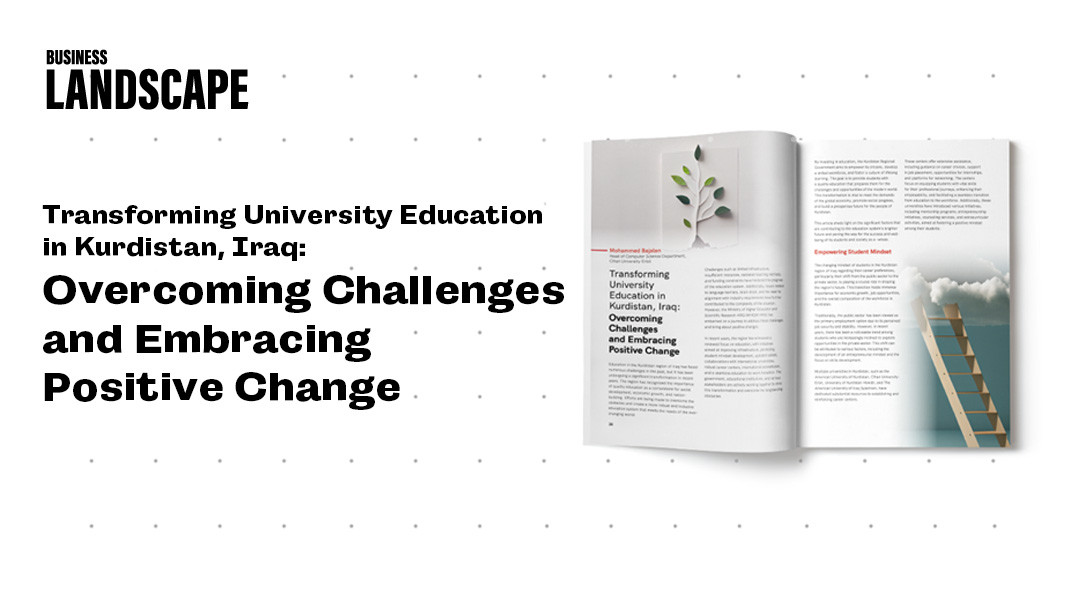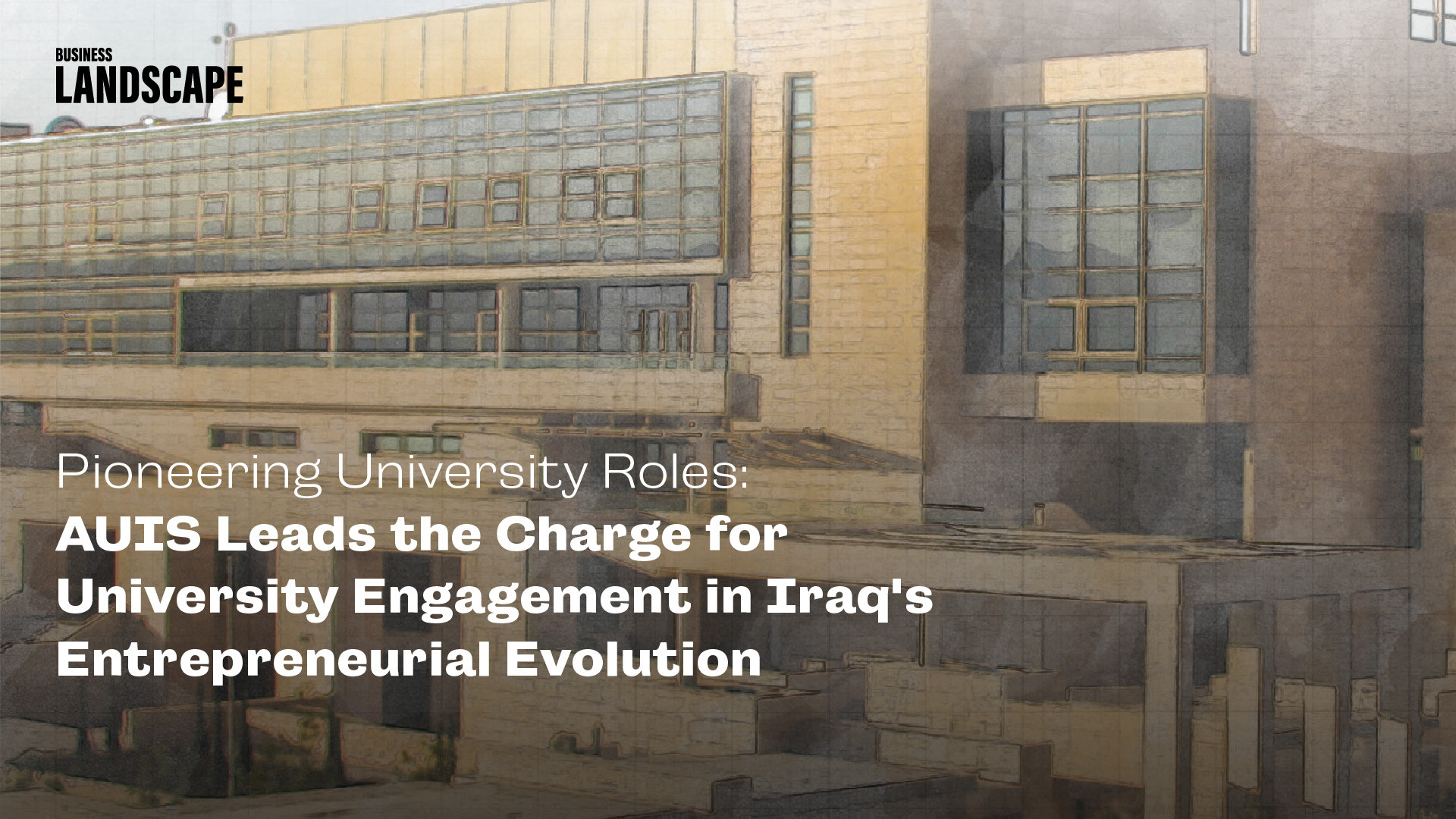Redefining Priorities: Is Iraq on the Path to a Climate-Resilient Business LANDSCAPE?
Mohammed Jamal, Editor-In-Chief
Safwa Salim, Executive Editor
Business LANDSCAPE Magazine
In the ninth issue of the Business LANDSCAPE Magazine, we address the pressing challenge of climate change, which is gaining increased recognition in Iraq due to its evident and alarming impact. Over the years, political, security, and economic challenges have diverted the attention of the government, private sector, international agencies, and other stakeholders invested in Iraq's development, causing climate change to be relegated as a secondary concern.
However, as the adverse effects of climate change have caused serious damage on the national level, it has become impossible to ignore the need for mitigation measures. The repercussions of climate change on Iraq's business landscape necessitate urgent intervention. Recognizing our responsibility as a private sector development entity, KAPITA Business Hub has prioritized climate change, aiming to address it through awareness campaigns, policy development, and technology advancements. Consequently, this issue of Business LANDSCAPE magazine is dedicated to tackling the multifaceted challenges of climate change within these three focal points.
The chain of climate change impacts is launching the country on a trajectory toward a full-fledged calamity. Desertification, water scarcity, declining precipitation, rising temperature, and dust storms are some of the major climate issues Iraq is currently facing. These conditions have led to a direct impact on the lives of the people and their security. (Read more on page 62, Climate Change Overview: Impacts, Mitigation, and Adaptation in Iraq by KAPITA’s Research Team).
Furthermore, the climate change impact has aggravated the issues of many vital sectors in the country, such as energy, agriculture, health, water, natural systems and forests, biodiversity, and others. Iraq must strive to enhance its national capacity to face the effects of climate change across various sectors and on different levels, with a focus on the most vulnerable and susceptible areas. (Read more on page 26, Dust Storms on the Horizon: Addressing Climate Change Impact on Iraq and the Urgency for Proactive Response by Dr. Hayder Mohammed Abdul-Hameed).
The impact of climate change has made it extremely difficult for many population groups to sustain basic living conditions, forcing thousands of farmers to leave their rural areas in search of better economic opportunities in city centers. As of December 2022, there are over 11 thousand displaced families (around 68 thousand individuals) in central and southern governorates. (Read more on page 18, Climate-Induced Displacement and its Fallouts on the Iraqi Socioeconomic Life by Ali Dawood).
On the other hand, the rapid increase in the urban population, especially in Baghdad, coupled with the lack of urban planning, has led to an economic housing bubble that is aggravating the impact of climate change by expanding into the green spaces of the capital. (Read more on page 8, The Urban Violation: The Eradication of Green Spaces in Baghdad by Abdullah Tareq Abbood).
Consequently, the rapid urbanization proceeds without regard for energy consumption and its damaging effects. It is estimated that more than 60% of the generated power in Iraq is consumed by residential buildings. Around 42% of the energy consumption in houses is associated with cooling loads, and a quarter of it goes to heating. This highlights the importance of utilizing efficient cooling systems and incorporating passive design strategies to reduce energy consumption. (Read more on page 30, Mitigating Climate Change Through Energy-efficient Design Principles by Ahmed Hamdani).
In addition, the agricultural sector is on the front lines of the climate change battle. Extreme weather events, water scarcity, and soil degradation are some of the challenges that farmers face in the wake of this crisis. Introducing innovative agricultural practices could build a more sustainable and resilient agriculture sector. (Read more on page 36, From Incubation to Action: How Qaf Lab is Accelerating Climate-Smart Farming in Iraq by Ahmed A. Mohammed).
Moreover, the conversation about climate change has been ongoing, but it seems to neglect tourism and ecotourism, which is one of the most intertwined sectors with climate. Many of Iraq’s ecological landmarks have disappeared due to the drought of lakes and vast areas of marshes in southern Iraq, which hinders the potential of ecotourism that can serve as a source of employment, business opportunities, and recreation. (Read more on page 22, Iraq As a Final Destination? Attempts to Build a Thriving Ecotourism Scene by Isa Mohammed).
To increase the readiness level of Iraq to combat the challenge of climate change, it is critical to highlight the key stakeholders, from government bodies to the private sector and civil society organizations, and their level of responsibility and influence from three thematic areas, which are policy and decision-making, awareness and information dissemination, and technological and technical transformation. (Read more on page 50, Stakeholder Mapping for Climate Action: Leveraging Awareness, Policy, and Technology by KAPITA’s Research Team).
Furthermore, KAPITA Business Hub has hosted a conference to discuss the findings published in the stakeholders mapping research. The conference featured three panels; Policy and Decision Making in Climate Change Related Projects, Awareness and Information Dissemination about Climate Change, and Technological Transformation Towards Climate Change Mitigation and Adaptation. The conference was an open invitation to think collectively about solutions to climate change. (Read more on page 42, Stakeholder Mapping for Climate Action: Leveraging Awareness, Policy, and Technology Conference).
The discussion of climate change impact cannot continue without highlighting the hydrocarbon sector and the oil and gas industry, especially in an oil-dependent economy like Iraq. Business LANDSCAPE had the pleasure to interview a leader and trailblazer in this sector, Mr. Majid Jafar, CEO of Crescent Petroleum, who shared with us his views on the oil and gas industry and their latest developments, challenges and opportunities, and future potential. And discussed the impact of climate change on the hydrocarbon sector, Crescent Petroleum’s commitment to sustainability, and the steps they have taken to reduce its carbon footprint. (Read more on page 72).
We also had the honor to interview his excellency Mr. Mark Bryson-Richardson, the British Ambassador to Iraq, who discussed the issues the British Embassy is addressing in Iraq, their efforts in mitigating the impact of climate change in Iraq, and their support of renewable energy projects. (Read more on page 80).
Moreover, Mr. Maythem Saad, Founder and CEO of Berhyah, told us the story behind Berhyah, the challenges of an import-saturated market, and the impact of climate change on food manufacturing businesses. (Read more on page 86).
Moving forward, we extend an open invitation to all stakeholders involved in Iraq's development to join us in comprehending and dissecting the complexities of climate change through the lenses of awareness, policy, and technology. Together, let us devise and implement strategies to respond to this global concern effectively. Remember, addressing climate change is a responsibility that lies with each and every one of us.
